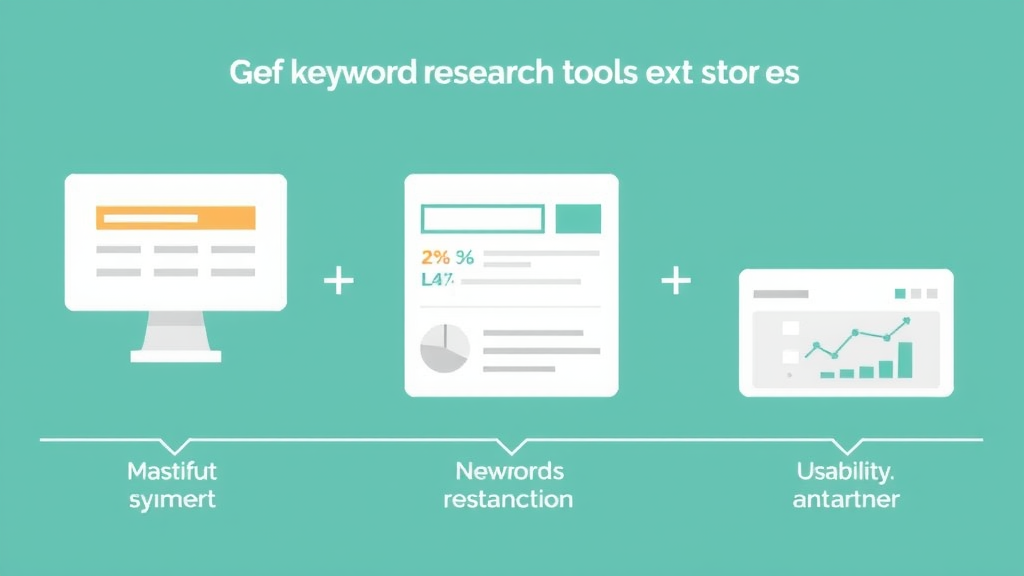Did you know that keyword research for psychologists is not only a tool for boosting online presence but also for gaining a profound understanding of client needs? In the digital age, where the right words can unlock entire new dimensions of client insight, aligning with tailored keyword strategies is crucial. This article unpacks the pivotal role keyword research plays within the realm of psychology and how it aids in understanding and reaching your ideal client more effectively.
The Power of Keyword Research in Psychology
Keyword research acts as a compass guiding psychologists toward not only enhancing their online presence but also comprehending the evolving needs of their clients. In the mental health sector, effective keyword research translates into connecting deeply with clients by crafting content that resonates with their search behavior. Imagine tapping into the exact language clients use when they are searching for anxiety therapy or mental health services; this understanding can pave the way for delivering more meaningful content.
Understanding the Importance of Keyword Research for Psychologists
For psychologists, keyword research is akin to a window into the minds of potential clients. As they explore ideal clients' search terms, they gain insights into what concerns or interests their audience the most. This awareness is vital for tailoring content that speaks directly to the target audience, whether they are seeking anxiety therapy, mental health services, or other psychological support. By identifying these terms, mental health professionals can offer solutions aligned with client expectations.

Practical Examples of Keyword Research Enhancing Psychological Understanding
Consider the impact of keyword research in psychological practice: when a psychotherapist uses terms like "cognitive behavioral therapy for anxiety," they are targeting a specific audience looking for certain types of treatment. Not only does this enable better service offerings, but it also assists in improving search results rankings, making the psychologist's practice more visible in a crowded online marketplace. Another example could be a clinic focusing on child psychology, leveraging keywords like "child behavior therapy" to reach concerned parents effectively.
Identifying Tail Keywords Effectively
While broad search terms may attract a large audience, tail keywords are about specificity and relevance. These keywords often involve three or more words and yield a more focused audience that is typically ready to take action. For psychologists, understanding the nuances between "therapy" and "online therapy for anxiety in adults" can mean the difference between a missed opportunity and connecting with potential clients seeking immediate help.
How Tail Keywords Can Transform Mental Health Marketing
Incorporating tail keywords allows mental health professionals to refine their marketing strategies. This technique targets the niche search terms clients use when they are closer to making a decision about their mental health needs. For instance, a search for "intensive OCD treatment for teenagers" indicates a specific need, allowing therapists who optimize for such keywords to attract highly motivated clients seeking immediate assistance.

Using Tail Keywords to Attract Your Ideal Client
Mastering tail keywords effectively means capturing the attention of individuals with clear and specific needs. Tailoring content to include phrases like "affordable telehealth therapy for depression" not only enhances visibility but also ensures that when clients search for these terms, your practice stands out as a competent and available solution. This aligns with attracting ideal clients who have a more defined understanding of their mental health requirements.
Maximizing the Impact of Search Engines in Psychology
Leveraging search engine optimization (SEO) tactics is pivotal for mental health professionals aiming to increase their reach and functionality online. These strategies refine how psychologists present themselves and their services, aligning with search algorithms that prioritize client-focused content tailored to keyword strategies. Engine optimization ensures that professionals remain visible where and when the need arises most.
Leveraging Search Engine Optimization for Mental Health Professionals
For efficient search engine optimization , psychologists must focus on creating content that is both authoritative and accurate. This involves crafting articles and resources that respond to the common questions potential clients have, thereby establishing credibility and trust. SEO best practices involve integrating search terms naturally within content, enhancing both readability and accessibility.

Local SEO Strategies for Health Professional Practices
Local SEO is especially vital for psychologists operating a private practice within a specific geographic area. By optimizing for local search terms such as "mental health services in [City Name]," therapists can ensure their practice is featured prominently when local clients search for services. Utilizing local SEO also involves managing local listings and garnering positive client reviews, further boosting one's ranking in local search results.
Boosting Online Presence through Targeted Keyword Strategy
Maximizing online presence hinges on utilizing tools like Keyword Planner to uncover the most relevant keywords. An effective keyword strategy identifies terms your potential clients are actively searching for, incorporating them into your content to anticipate and meet their needs. This proactive approach not only elevates your online visibility but also reinforces your position as a leader in the field.
Optimizing Online Presence with Keyword Planner Tools
The Google Keyword Planner is an invaluable resource for identifying relevant keywords that align with both your practice's focus and client search behavior. By inputting potential terms, psychologists can refine their keyword list to include those with substantial search volume yet manageable competition. This process ensures that their content responds to client needs effectively while also standing out in search results.

Building Authority Online as a Health Professional
Establishing authority as a health professional online involves more than just keyword placement; it demands consistently delivering insightful, engaging content. This content strategy not only bolsters the professional's reputation but also builds trust with potential clients. By engaging with the audience through blogs, videos, or podcasts and aligning the content with targeted keywords, professionals can maintain a robust online presence that harmonizes with their practice goals.
Keyword Research Tools: A Must for Every Psychologist
Whether a seasoned professional or a newcomer to the field, keyword research tools offer psychologists the insights required to remain competitive. By exploring frequently searched terms within the mental health field, these tools inform content development, ensuring it aligns with what potential clients are actively seeking.
Best Practices for Using Keyword Research Tools
To use keyword research tools effectively, psychologists should begin by identifying their target audience and the specific services they seek. Regularly updating and analyzing keywords ensures that the psychologist's content stays relevant and effective in drawing in the right audience. Tools like SEMrush or Ahrefs, known for their extensive databases, can significantly aid in fine-tuning content strategies.

Google Keyword Planner: A Comprehensive Guide
The Google Keyword Planner is particularly beneficial for its user-friendly interface and comprehensive overview of how certain keywords perform over time. This guide provides step-by-step instructions on how mental health professionals can leverage the planner to research potential keywords effectively, allowing them to tailor their strategies to meet client needs while also positioning their services prominently in search results.
Effective Search Engine Optimization Techniques
To ensure content ranks highly on search engines, mental health professionals must understand the role of search volume and design content that directly answers client inquiries. By focusing on building detailed, authoritative, and well-structured content, professionals can meet both the technical and emotional needs of their target audiences.
Understanding Search Volume and Its Impact
Search volume is the metric indicating how often a given keyword is used in searches over a specific period, providing insights into the terms your target audience might use. Understanding this allows health professionals to prioritize content development around high-volume, relevant keywords, ensuring their writing resonates with what clients are actively probing.
Creating Content that Ranks: A Guide for Mental Health Professionals
Crafting content that ranks involves strategic planning and a comprehensive understanding of both client needs and search trends. By embedding relevant keywords naturally within engaging and informative content, mental health professionals can enhance visibility and establish connections with their potential clients. This strategy not only ensures better search results but also fosters an enduring client relationship built on clarity and trust.

Decoding SEO for Therapists
What is SEO for Therapists?
Search engine optimization (SEO) for therapists involves optimizing their online platforms to appear higher in search results, making their practice easier to find for potential clients. It incorporates aspects such as keyword integration, website functionality, and engagement metrics designed to enhance the practice's online visibility and client accessibility.
Finding Good Research Keywords
How do I find good research keywords?
Identifying the right research keywords involves using tools like Google Keyword Planner to track search volume and competition levels. Competitor analysis, client feedback, and continuous refinement of your keyword strategies ensure you are aligning with terms that will deliver high engagement and conversion rates.
Keyword in Psychology Defined
What is the keyword in psychology?
In psychology, a keyword refers to the search terms frequently used by potential clients seeking psychological services or information. These keywords guide psychologists in creating content that aligns with what clients need, ensuring that services are marketed effectively, and that client engagement is maximized.
Research Applications in Psychology
What do psychologists use their research for?
Psychologists utilize their research to develop interventions, understand behavioral patterns, and tailor therapy practices. Effective keyword research aids in these objectives by identifying prevalent concerns or interests among the public, enabling psychologists to address specific needs through their published work and client interactions.
“Understanding your audience is the key - especially in mental health. Proper keyword research can guide us toward what clients truly need.”

| Keyword Research Tool | Effectiveness | Usability |
|---|---|---|
| Google Keyword Planner | High | Medium |
| SEMrush | Very High | High |
| Ahrefs | Very High | Medium |
| Keyword Tool | Medium | Very High |
Final Thoughts on Implementing Keyword Research Strategies
The Road Ahead for Psychologists in the Digital Age
As psychologists navigate the digital era, implementing dynamic and insightful keyword strategies will be instrumental in staying relevant. By continuously engaging in keyword research, they can ensure their content not only reaches but also profoundly impacts the clients they serve.
- What You'll Learn:
- Importance of keyword research in psychology
- Strategies for finding tail keywords
- Improving online visibility through SEO
- Using keyword tools effectively
FAQs
- What is SEO for therapists? SEO for therapists optimizes their online presence, easing client accessibility and enhancing visibility.
- How do I find good research keywords? Use keyword tools like Google Keyword Planner , consider client feedback, and analyze competitor strategies.
- What is the keyword in psychology? It denotes terms frequently searched by clients, guiding psychologists in creating relevant content.
- What do psychologists use their research for? Developing interventions, understanding behaviors, and tailoring practices based on client needs.
 Add Row
Add Row  Add
Add 




Write A Comment